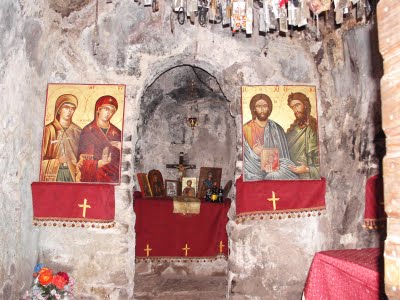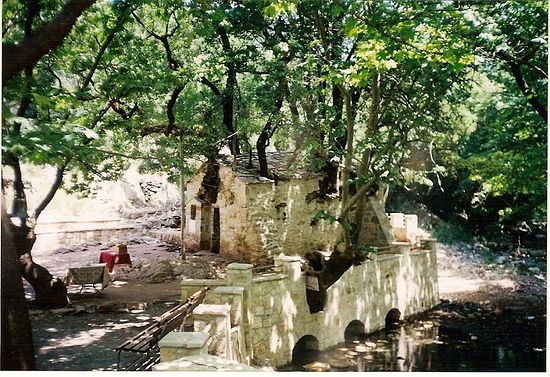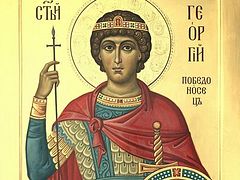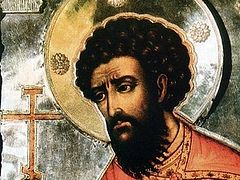 St. Theodora of Vasta.
St. Theodora of Vasta. During the tenth century, when St. Theodora was born, there was a law in the Byzantine Empire that required every family to send at least one male to fight as a soldier, or pay a tax. Because St. Theodora’s family had no male children and was very poor, her father would have had to serve. St. Theodora loved her father, did not want her family to be deprived of his protection, and so she conceived the idea of offering herself instead. Dressed as a boy, she enlisted in the army as “Theodore”.
Not only was Theodore successful in keeping her secret in the ranks, she became a courageous soldier, respected for her honor and valor. However, she also drew the admiration of a young lady who fell in love with “Theodore” and told everyone that she was pregnant by him. Soldiers in those days were held to high standards, and Theodore was commanded either to marry the girl, or be condemned to death. Theodora did nothing to show her innocence, although this would obviously have been a very easy thing to do; she did not wish to reveal her secret, and bring a possible penalty upon her father.
St. Theodora had deep faith in God, and before her execution she prayed, “Let my body become a church, my blood a river, and my hair, the forest.”
Some histories show that there was an ancient monastery on the current site of the church over St. Theodora’s grave. The three-by-two meters church dates back to sometime between the eleventh and twelfth centuries. The forested site is lush and green, with a clear river flowing under the church. Seventeen large trees—up to thirty meters tall—grow from the roof, but there are no roots to be seen, no cracks in the wall, and no damage to the roof. It may also be noted that when fires raged through the Peloponnese in 2007, scorching 370,000 acres of land and destroying ancient forests, Vasta remained untouched. The entire site with its miraculous church and river has the feeling of a living, breathing, incorrupt relic.
 Inside the church in Vasta.
Inside the church in Vasta. May we all remember how God honored St. Theodora when she forsook the easy justification of her own honor in the eyes of men. St. Theodora pray to God for us!





